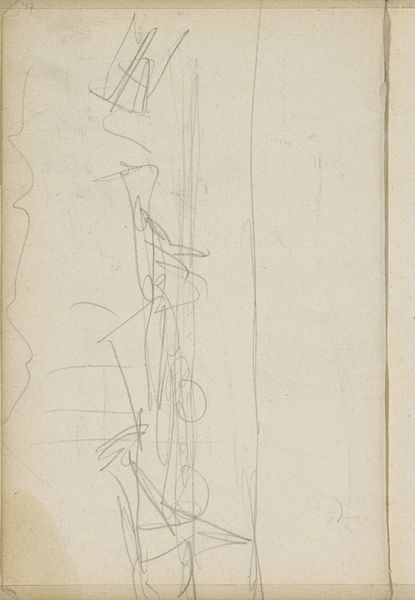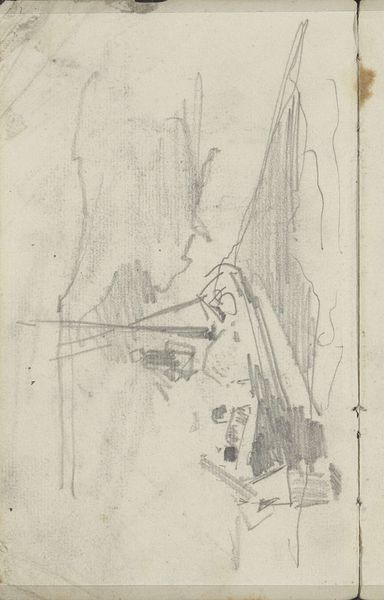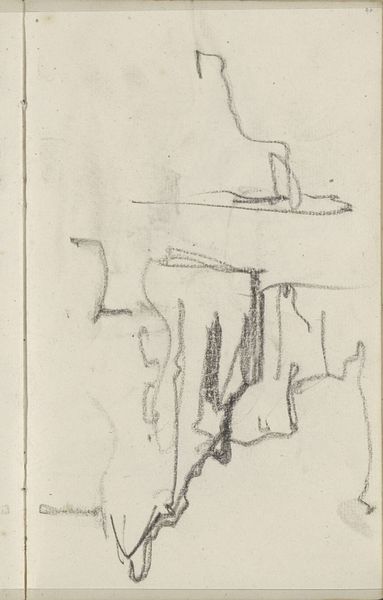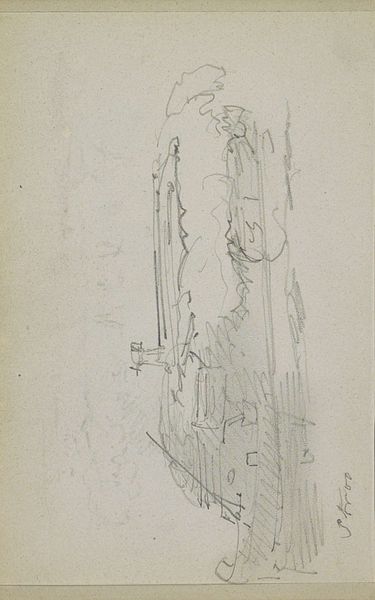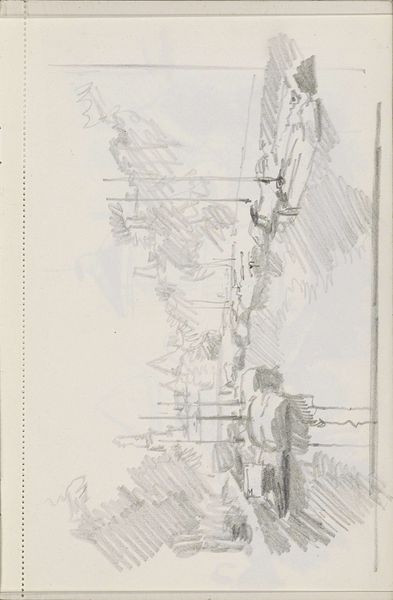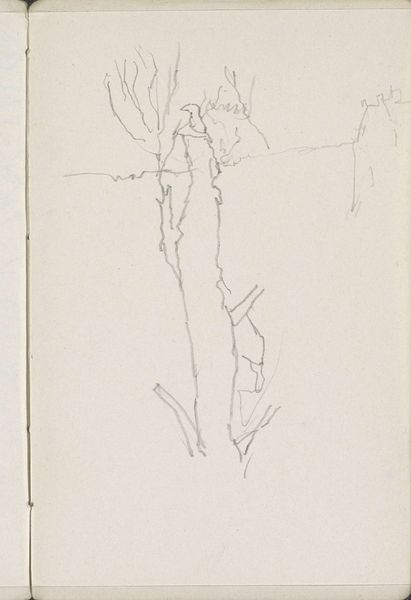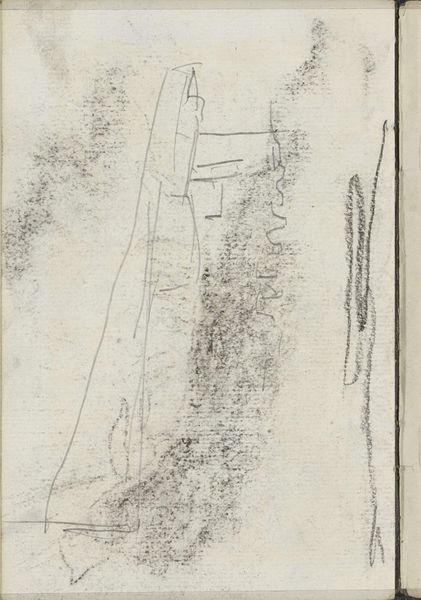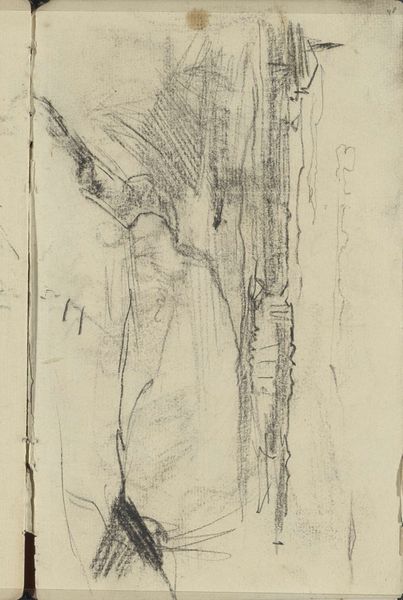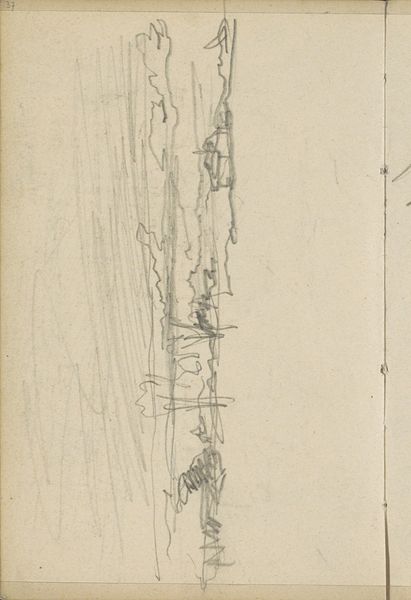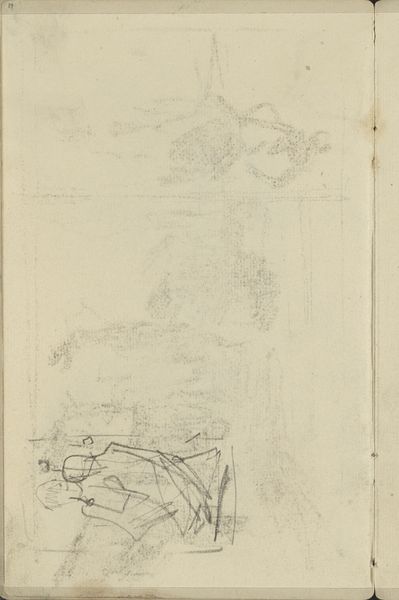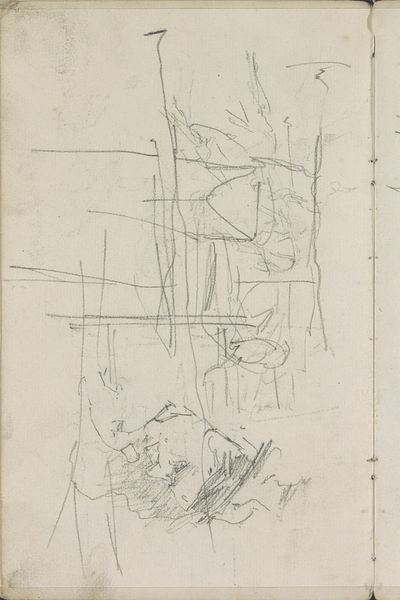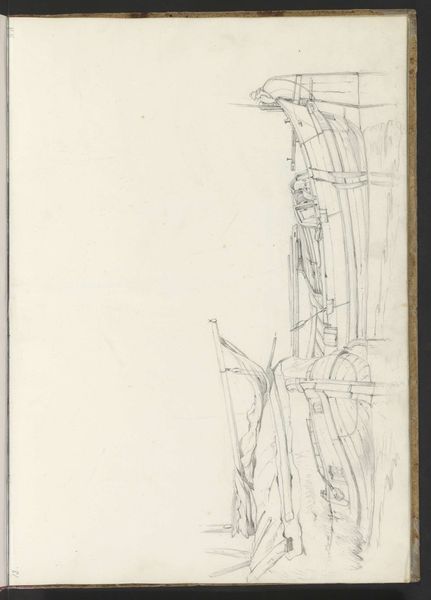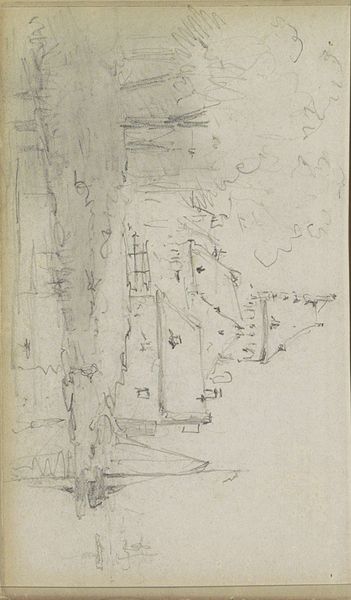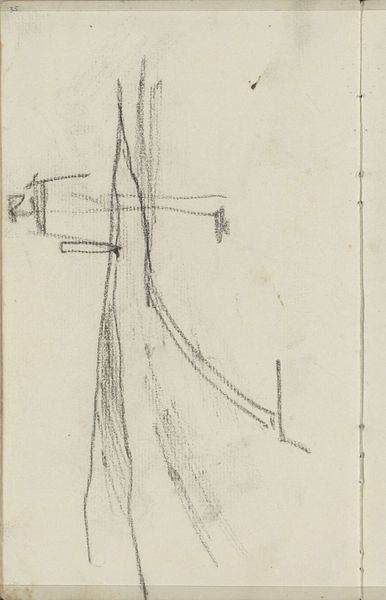
drawing, pencil
#
drawing
#
amateur sketch
#
impressionism
#
incomplete sketchy
#
landscape
#
personal sketchbook
#
idea generation sketch
#
sketchwork
#
ink drawing experimentation
#
pen-ink sketch
#
pencil
#
sketchbook drawing
#
sketchbook art
#
initial sketch
Copyright: Rijks Museum: Open Domain
Curator: Looking at George Hendrik Breitner’s "Duinlandschap," or "Dune Landscape," dating from 1880 to 1882, the first thing that strikes me is the raw energy in the marks. Editor: It's interesting; to me, the quick pencil strokes evoke a sense of impermanence, a transient moment in nature captured hastily before it shifts or disappears entirely. This contrasts sharply with the labor that ordinary people have had to exert when claiming that land to cultivate and settle, the labor invested in survival. Curator: Yes, Breitner clearly prioritizes the immediacy of observation. Note the economy of the line; each stroke seems decisive, focused on capturing form and light with minimum effort. I imagine him rapidly filling sketchbooks while roaming. The question of artistic labor and intention fascinates me—was this just practice? Where do these drawings fit into his artistic production as a whole? Editor: It makes you wonder, doesn't it? And perhaps there’s also something to be said about Breitner, the city painter, confronting the landscape – his engagement with the rapidly changing urban landscape in Amsterdam versus the more constant presence of the dunes, where natural forces reshape the landscape. What does it say that he also invested creative work here? Was there some connection between landscape, settlement, cultivation and erasure of work from history, as has been the case with Amsterdam? Curator: That is interesting! Certainly, the raw quality underscores a modern sensibility, focused less on idealised representation and more on direct experience. And you make a good point about his work in Amsterdam where his eye was caught by those labouring to sustain the economy. These sketches suggest a fascination, however fleeting, with the less commodified world outside that urban centre. Editor: The fact that this is a drawing, and appears almost as a fragment, means something too: it becomes about process and a perspective, that can challenge the more finished works in his ouvre. So it could provide a unique vantage point on those other images, for those that have less voice in the history told. Curator: I agree. It offers a fascinating glimpse into Breitner's creative process. It lets us engage not with a polished product, but with the actual labor and initial gestures behind that work. Editor: Ultimately, for me, it makes visible what's gone unseen, those places where narratives and assumptions shift. Curator: Well said; a rough drawing opens vistas for fresh perspectives.
Comments
No comments
Be the first to comment and join the conversation on the ultimate creative platform.
